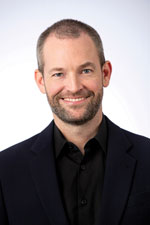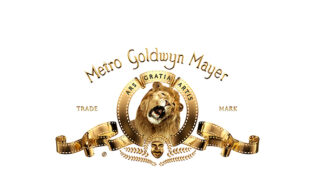 Under the leadership of Jennifer Salke, Amazon Studios has been building an enviable slate of high-end originals, from the upcoming, big-budgeted The Lord of the Rings adaptation to the buzzy The Boys and Good Omens. While much of Amazon Studios’ activity has been in the U.S., it’s certainly not neglecting the service’s global footprint, unveiling originals in India, Japan, Mexico and a raft of other markets. James Farrell, head of international originals, tells World Screen about what Amazon Studios is looking for and how it is fostering relationships with producers and writers worldwide.
Under the leadership of Jennifer Salke, Amazon Studios has been building an enviable slate of high-end originals, from the upcoming, big-budgeted The Lord of the Rings adaptation to the buzzy The Boys and Good Omens. While much of Amazon Studios’ activity has been in the U.S., it’s certainly not neglecting the service’s global footprint, unveiling originals in India, Japan, Mexico and a raft of other markets. James Farrell, head of international originals, tells World Screen about what Amazon Studios is looking for and how it is fostering relationships with producers and writers worldwide.
WS: You were previously overseeing originals in Asia. How has the journey been for you, expanding beyond Asia to commission original series from across the international market?
FARRELL: We learned some good lessons in Japan and India. Those lessons apply to the U.S., too. Initially, we thought we were stuck in this dilemma where if we make something super local or super niche, would a global audience want to watch it? Look at things like The Marvelous Mrs. Maisel, which came out of the U.S. When it was greenlit, people were wondering how broad the appeal would be, not only in the U.S. but around the world. It turns out it’s one of our top shows around the world because it is so specific and the world is so authentic. And then we made shows in India like Made In Heaven and Breathe and Mirzapur. Those are very Indian stories, but they traveled so well for us. All of a sudden you realize, we don’t have to try to make some generic global show. If we make a really good show locally that’s very specific and gives people insights into a world they haven’t seen, people will like it. We’ve carried that over to Latin America and now to Europe.
WS: How are you identifying talent?
FARRELL: The challenge is always, how do you find these folks? Luckily, the first thing we always do is hire good local people. If you hire someone who is well respected in the country and has that network, then right away you start becoming aware of what projects are available. Or, if there’s an idea we want to produce, let’s go to quality people locally and say, Who wants to partner with us? It’s a pretty even 50-50 split. We are going to writers, actors, producers, directors and saying, We’re looking for distinctive, unique content; do you have anything you’re interested in doing? About half the ideas come in that way. The other half are ideas that germinate with us. When we hear ideas they want to do with us, we also say, We’ve got this other project we’re super excited about, but we need somebody to partner with locally that can help us deliver, do you want to get involved? That’s when the relationships get stronger—when there’s a fun back and forth with ideas going in both directions.
WS: How do you support these creatives in telling the stories they want to tell, while also ensuring that you have a show that will work on your service?
FARRELL: All streaming services have different goals, whether it’s an advertising-supported (broadcast TV or on-demand) standalone service or one that’s bundled with telephony. Prime is a bundle with retail. Each has different things that are important to it. Because there’s no advertising on our service, we don’t have to worry about some of the things the ad-based services do. That frees up a lot of ideas that couldn’t have gone to an ad-supported service. That’s one reason people choose to work with us. And, we are more focused on those countries where we have Prime—that’s where we have millions of customers. Often when they’re dealing with other services the questions are much more about, How do we get a U.S. writer on this? How do we make it more global? How do we do more in English and less in local language? That’s not what we want. We want a local writer who knows what local people want to see. We want local stars. We want local language.
WS: In Asia, you were doing a lot of variety in Japan and more scripted in India. Are you playing with different genres globally or is the focus mostly on drama for the international market?
FARRELL: At Amazon, rule number one from Jeff [Bezos] is, What does the customer want? In Japan, we made these variety shows, and some of them are pretty crazy! People were watching them, loving them, commenting on them. If that’s what customers are appreciating, we’re going to give it to them. In India, Made In Heaven and Four More Shots Please! did super well; Inside Edge is coming back. We’ve had much more success on the scripted drama side. So we are doubling down on the scripted dramas in India. In Mexico, they seem to like a little bit of everything. Our big hit in Mexico last year was LOL: Last One Laughing with Eugenio Derbez. It’s an unscripted comedy competition show. El Juego de las Llaves (The Game of Keys) is a boundary-pushing comedy-drama about couples in their mid-30s struggling with infidelity, friendship and love. Coming up next year are dramas based on “FIFA Gate” [El Presidente] and one on [footballer Diego] Maradona from Argentina. Those are big in scale. El Juego de las Llaves is big in terms of the boundaries it’s pushing. LOL was just a crazy unscripted show. We’re not going into any country with some preconceived notion like: we think they’re going to like scripted or unscripted, drama or comedy. You start working with the best people, you make those first half a dozen or dozen investments and try to learn about what people want to watch and do more of that.
WS: How are the international and U.S. teams working together at Amazon Studios?
FARRELL: Jen [Salke, head of Amazon Studios] has a “home for talent” message, which means we’re not out there looking for a huge volume of shows in any one country. It really is about quality. You go country by country, you try to find the right people and then you go back and forth with ideas. We’re lucky that we’re part of Amazon, this Prime ecosystem. If a customer is using all these other Prime benefits, they don’t need just a volume of content from us. They need high-quality stuff. Her message of home for talent is exactly what we’re doing all around the world. So to answer your question, we’re very much in sync with the U.S. team. Maybe the best example is the Russo Brothers show. They did all the Avengers films. They’re really good at these interconnected-type universes. They’re doing a big tentpole spy thriller show for us in the U.S. that’s great on its own. Then each of the characters in that spy thriller will have their own series. India and Italy are the first two we’ve announced. The storylines will intersect. The stars will cross over. The Indian show will be in Hindi. The Italian show will be in Italian. It’s giving us a chance to work with the top people in each of these countries, for them to contribute to this global universe and do it in their own unique voice. Each country is writing its own scripts and we have a team here in L.A. making sure everything intersects. We’re already up and running on the first few—U.S., Italy and India—and the next several countries after that are all being written and the bibles developed. That’s going to be an example of how people around the world will come into the massive U.S. tentpole, but then they’ll be drawn into all these local-language shows and vice versa. A lot more people in India watch Mirzapur and Made In Heaven than our U.S. shows, but after they watch the big Russo Brothers Indian leg, they’ll probably be pulled into the Italian one and the U.S. one.
WS: What’s your message to the international creative community?
FARRELL: The most common question we get everywhere is, What are you looking for? It’s not a secret: We want something distinctive. If it’s the same type of show that could be on another streaming service or broadcast or YouTube, it’s probably not that interesting [for us]. Why would somebody become a Prime member to see something they can see somewhere else? It could be wacky and different, like LOL or some of the variety shows we did in Japan. It can be something world-building and high budget, like El Presidente, the show we’re doing with Gaumont; the Maradona show; some of the ones we’ve announced in France; and the Russo Brothers show. It could be like El Juego de las Llaves—it wasn’t terribly crazy or particularly world-building or high budget or high concept; it’s just a well-written drama about a subject that hasn’t been covered before. Our message to all the folks in attendance [at MIPCOM] is, this is what we’re looking for. Please avoid the basic cooking show or a pitch about buddy cops. Those are not things we’d be interested in doing.
WS: How do analytics inform your programming decisions?
FARRELL: The data is much more helpful for season two and beyond than it is for season one. Season one is such a creative decision. The data could show that everyone is loving doctor shows but then after the two-year cycle of soliciting a pitch and making a show, maybe people are liking lawyer shows by then. So we don’t look at data too much when we’re deciding whether to make something. After something gets written and we see it and know who is going to star in it, we know. But when it comes to season two, whether or not we should continue future seasons, that’s where we look at, Did people like it? Was the completion rate high? Were people watching not only in the home country but around the world? If people are loving it around the world, we’ll probably renew it for seasons two and three at once because we’re so enthusiastic about making sure we’re continuing the story for the customers who like it. The data gets much more important after you see how [a show] does.






